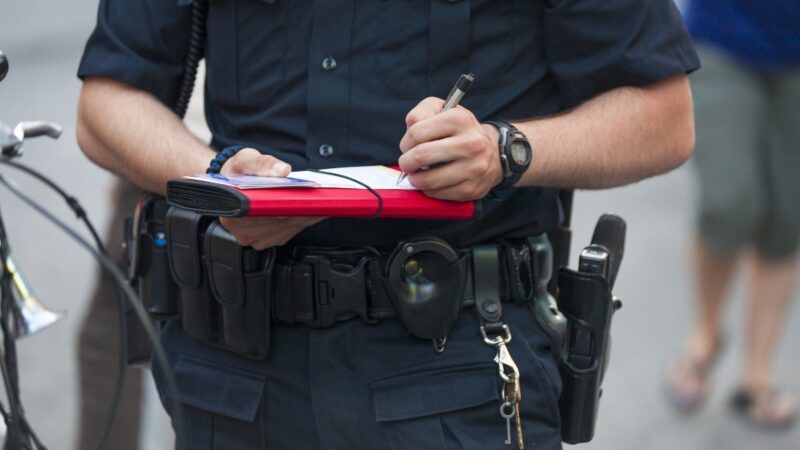This Alabama Town's Shakedowns Are So Egregious That the Justice Department Is Backing a Suit Against It
Brookside faces several federal challenges for trying to fund its city by ticketing and towing the cars of anybody they can get away with.

The Department of Justice has submitted a letter expressing interest and support in a class-action lawsuit against a small Alabama town that drew national attention for turning to shady police stops and fines to jack up municipal revenue by more than 600 percent in two years.
When we last took note of Brookside, Alabama, a town of 1,500 people north of Birmingham, Police Chief Mike Jones had just stepped down following Birmingham News reports showing he, the mayor, and the police had embarked on a plan to bankroll Brookside by stopping and fining as many travelers as they possibly could. By 2020, half of the city's $1.2 million revenue was coming entirely from fines and forfeitures, and then that money was being used to pay for the police department's growth.
Brookside was facing a pack of federal lawsuits from citizens who claimed police were fabricating charges to force people to pay thousands of dollars in fines and seizing their vehicles. In April, the Institute for Justice (IJ) filed a class-action complaint against Brookside, some of its police officers, and the towing company that the police were using to seize people's cars. IJ is representing plaintiff Brittany Coleman (and three others), who says she was pulled over for following her boyfriend's car too closely and also cited for marijuana possession, a charge that was dropped later because the police didn't actually find any marijuana. Nevertheless, they had her car towed, and she had to pay close to $1,000 to get it back.
The lawsuit, in the U.S. District Court of the Northern District of Alabama, Southern Division, seeks to have the town's practices declared an unconstitutional violation of the Due Process Clause of the 14th Amendment, an injunction forcing the towing company to return people's vehicles and any fees they've paid, and, obviously, an end to the whole scheme.
The town's money-grubbing seems to have collapsed amid the media attention and lawsuits. In late April, the Birmingham News published a deeply researched piece on the police department's misconduct. By then the chief had quit, as had half of the town's police force. The mayor pulled the police off the nearby interstate, and a state audit had outlined "missing guns, poor financial practices and shoddy storage of evidence, including an unmarked trash bag filled with prescription medicines that did not seem to be associated with any particular case."
On Tuesday, Carla C. Ward, an assistant U.S. attorney for the U.S. Attorney's Office of the Northern District of Alabama, sent in a friendly "statement of interest" supporting IJ's lawsuit and encouraging the court to allow it to proceed in response to Brookside filing a motion to try to get the lawsuit dismissed. The letter notes the severe conflict of interest of the town so heavily depending on fines and forfeitures to fund the very police officers who are pulling people over:
Judges should not profit from their decisions in cases. Nor should funding for prosecutors or police officers depend substantially on unnecessarily aggressive law enforcement aimed at generating income through fines and fees. Criminal justice systems tainted by these unreasonable incentives stand to punish the poor for their poverty and put law enforcement at odds with the communities they are meant to serve.
The letter notes that pay for both the town's prosecutor and the municipal judge in Brookside dramatically jumped during these years of increased enforcement.
"The Justice Department's statement recognizes that Brookside's abusive system of policing for profit violates the Constitution, and that the town should be held accountable," IJ Attorney Jaba Tsitsuashvili said in a prepared statement. "No one should live in fear of being ticketed, fined, or having their car towed for the sake of raising police revenue."


Show Comments (30)